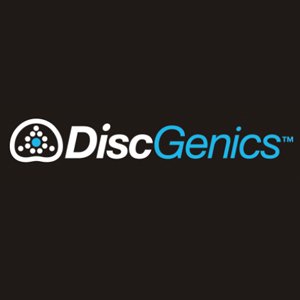
POSITIVE TWO-YEAR CLINICAL DATA ANNOUNCED FOR STUDY OF DISCOGENIC PROGENITOR CELL THERAPY (IDCT) FOR DEGENERATIVE DISC DISEASE
January 26, 2023
In an FDA-allowed prospective, randomized, double-blind, vehicle- and placebo-controlled, multicenter clinical study, high dose IDCT (9,000,000 cells/mL; n=20) safely increased disc volume and provided rapid, durable improvements in low back pain, function, quality of life, and pain medication usage out to two years post-injection in patients with early to moderate lumbar DDD.
Key findings include:
- The primary safety endpoint of the study was achieved with no subjects in the IDCT treatment groups experiencing treatment-emergent serious adverse events (TESAEs).
- As previously reported, the primary efficacy endpoint of the study was achieved, with statistically significant improvement in back pain scores by >30% as measured on a 100mm Visual Analog Scale (VAS) observed in the high dose IDCT group at 52 weeks (‑62.79%, p=0.0005). A smaller, significant decrease in VAS was also observed in the vehicle group.
- Clinically meaningful, statistically significant improvements in low back pain (VAS), function (ODI), and quality of life (EQ-5D) were observed by 12 weeks following intradiscal injection with high dose IDCT in subjects with symptomatic lumbar disc degeneration.
- These clinical improvements were sustained at six months, one year, 1.5 years, and two years post-injection and statistically exceeded the Minimal Clinically Important Difference (MCID) in each respective outcome measure, which reflect changes following a clinical intervention that are meaningful for the patient.
- In the low dose IDCT group (3,000,000 cell/mL; n=20), there was a trend in improvement of clinical outcomes, though inconsistent. While the vehicle control group (n=10) resulted in some pain relief, it was not associated with clinically meaningful improvements in function or quality of life. No consistent or durable statistically significant or clinically meaningful outcomes were observed in the saline placebo control group (n=10).
- Statistically significant improvements in disc volume were also observed in the high dose IDCT group, where MRI imaging-derived mean change in disc volume increased steadily from baseline and reached statistical significance at Week 52 (249.01 mm3, p=0.0284) and Week 104 (402.1 mm3, p=0.028), suggesting a regenerative effect.
- In contrast, changes in disc volume for the control groups decreased, although not at a statistically significant level.
- Importantly, the high dose IDCT treatment group was the only group in this study to show a decrease in both opioid and nonsteroidal anti-inflammatory drug (NSAID, e.g. aspirin, ibuprofen, etc.) use.
- At 2 years, overall patient follow-up was 85.0%.
“These clinical results demonstrate the incredible potential of DiscGenics’s IDCT to safely treat not only the pain and disability associated with DDD with a single injection, but also to address the underlying cause of the disease—the degenerating disc. This is unlike any treatment I have seen in 30 years of practice and unlike any treatment currently available on the market. The improvements we observed in disc volume through MRI image analysis suggest DiscGenics’s IDCT produces a regenerative effect within the degenerating disc which indicates the ability to halt and possibly reverse the progression of DDD.”
~ Matthew F. Gornet, M.D., Board Certified Spine Surgeon at
The Orthopedic Center of St. Louis and top enroller in the IDCT study
Learn More »